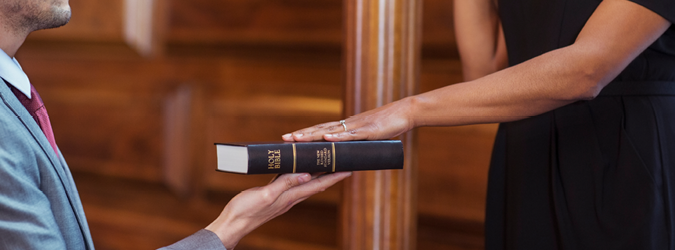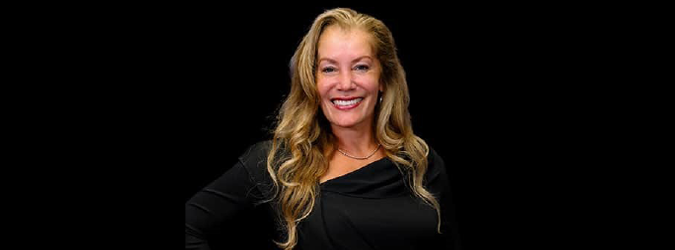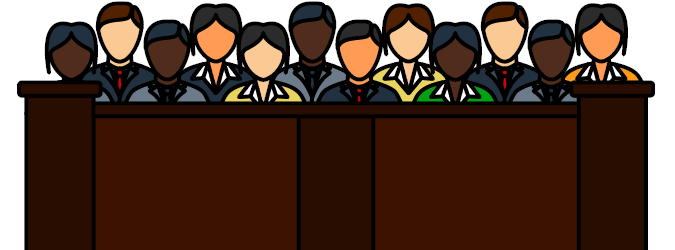(You Make Me Feel Like) A Natural Witness: Do’s and Don’ts of Witness Coaching
2.1.2024

Aretha Franklin’s 1967 “(You Make Me Feel Like) A Natural Woman” became one of her most popular songs.[1] Written by Carole King and Gerry Goffin for Franklin,[2] it was later covered by King herself on her 1971 “Tapestry” album.[3] Incredibly, the song later became a hit for Franklin on the United Kingdom’s singles chart almost 51 years after its first release (one week after Franklin’s death).
Nine years ago I published an article in NY Business Law Journal pointing out the ethical and legal dangers of “scripting” witnesses.[4] Now seems an appropriate time to look at the obverse of that issue: what constitutes appropriate witness preparation, and what (and where) are the lines that are not to be crossed. Hopefully, the end point of this article will be helpful guidance on how best to make a “natural” witness.
What Can You Do?
In this country, a lawyer has an “ethical duty to prepare a witness.”[5] Why is that? For numerous reasons, including: (1) to learn facts from a witness; (2) to support factual allegations in a pleading; (3) to avoid malpractice claim(s); (4) to assure a witness’s testimony will be clear, accurate, and admissible; and (5) to help a witness avoid improper interrogation by the opposing lawyer.[6]
The Restatement (Third) of Law Governing Lawyers[7] sets forth an enumerated list of permissible activities for preparing a witness:
- You may rehearse testimony.
- You may suggest choices of words to help make the witness’s meaning clear.
- You may discuss the witness’s recollections and probable testimony.
- You may “invite” the witness to provide truthful testimony that will be favorable to your client.
- You may review documents or other physical evidence that may be used during the testimony.
- You may review the factual context into which the witness’s testimony might fit.
- You may reveal other testimony and ask the witness to reconsider his or her recollection given the other testimony.
- You may discuss probable lines of cross-examination.
- You may discuss the law applicable to the controversy at issue.
- You may discuss the witness’s role in the controversy at issue.
- You may discuss “effective courtroom demeanor.”
Beyond these helpful guidelines let me add a few more:
- I always tell witnesses that, if responsive, “yes,” “no,” “I don’t know,” or “I don’t remember” are always good answers – if also truthful.
- As a corollary to the first point, I always explain that there is a critical difference between a witness’s first-hand knowledge and knowledge gained second- or third-hand. The latter knowledge is not really something the witness “knows” and thus to respond as if it is first-hand knowledge is not accurate testimony.
- As a further corollary to the first point, I always tell witnesses that the faster (and more voluminously) they respond to a question, the longer the interrogation will be. Reflecting on each question to ensure a full understanding thereof and then giving a brief answer(s) will get the process completed sooner.
- I also always explain that the witness’s job is not to try to be a lawyer, fence with the interrogating attorney, and anticipate where you think she or he is going. Concentrating on giving truthful testimony is the witness’s only job; trying to do a second job is a bridge too far.
- Finally, I always tell witnesses that, besides giving truthful testimony, how they comport themselves as a witness is at least as important as the words they choose. Giving cool, confident, competent, and candid testimony is the mark of an effective witness.[8]
What Can’t You Do?
The U.S. Supreme Court has made it clear that lawyers may not “improperly” influence a witness’s testimony;[9] but the court has left what that means up to the ethics rules we lawyers write to enforce our own conduct. American Bar Association Model Rule 3.3(a)(3) bars a lawyer from knowingly offering false testimony; and Model Rule 3.4(b) mandates that a lawyer may not “falsify evidence [or] counsel a witness to testify falsely . . . .”[10]
Some examples of lawyers crossing these lines should be instructive. The first comes from a very old New York Court of Appeals decision: Eldridge.[11] In Eldridge, a lawyer was suspended for writing out answers for witnesses; the court declared that a lawyer’s duty is “to extract the facts from the witness, not to pour them into him; to learn what the witness does know, not to teach him what he ought to know.”[12]
In Committee on Professional Ethics and Conduct v. Crary,[13] the Iowa Bar authorities took sterner action. There, an attorney knew a witness’s testimony was false, took no action to correct it, did not withdraw from the case, did not warn the witness she should not continue to lie, and did not inform the opposition (or anyone else, including the court) of the perjury.[14] That lawyer lost his license to practice law.[15]
And two decades ago, when the government was investigating Computer Associates, that company’s general counsel was charged with obstruction of justice.[16] With respect to one employee – who told the general counsel that he or she knew about Computer Associates’ wrongful conduct – the general counsel not only told the employee (repeatedly) not to volunteer or speculate or acknowledge any facts not within his or her personal knowledge, he gave those instructions even though he knew that the employee did have first-hand knowledge of the company’s conduct. This criminal case shows that even some traditional techniques of witness preparation can be used improperly if the purpose is to change testimony or avoid truthful testimony.
More recently, two high-profile cases also highlight the dangers to lawyers who cross the line. The first involves former White House aide Cassidy Hutchinson, who was a witness before the Jan. 6 Congressional Committee. In her second appearance before the committee, she testified that before her first appearance – her (former) lawyer (1) asked her to “tell the Committee that she did not recall facts when she actually did recall them”; (2) told her “the less you remember the better”; (3) “never told me to lie,” but instructed me to say “I do not recall” and recommended that she “use that response as much as you deem necessary”; and (4) told her, if she played ball, she would get a “really good job in Trump World.” Hutchinson’s first lawyer – Stefan Passantino, a former Trump White House ethics lawyer – is now the subject of a 22-page complaint filed with the District of Columbia Board of Professional Responsibility seeking his disbarment; Passantino has been accused of the crimes of subornation of perjury, obstruction of justice, witness tampering and bribery.[17]
Almost at the same time, a Fox News producer filed lawsuits against the company in New York and Delaware, accusing the network’s attorneys (including outside counsel from Winston & Strawn) of coercing her into giving “evasive” and misleading testimony in the legal disputes about the network’s coverage of purported fraud in the 2020 election. Fox News, in turn, countersued the producer to prevent her from disclosing communications she had with the network’s attorneys on the ground that they are protected by the attorney-client privilege.[18] As of the date of this article, those disputes remain pending.
The ABA and Remote Testimony
On Aug. 5, 2023, the American Bar Association issued Formal Opinion 508 (“The Ethics of Witness Preparation”). While the opinion spends a fair amount of time reviewing many of the same issues identified heretofore in this article, its real raison d’être is the issue of “misconduct in remote settings.” As the opinion notes, “[t]his is not a novel phenomenon. When the ubiquity of cellphone technology made it convenient to communicate with another person remotely, some lawyers began to abuse it.”[19] But with the pandemic and the onset of widescale testimony being given with the witness and lawyer in one location, the opposing lawyer(s) in another location, and (at trial) the court in a third location, the ABA felt it was important and necessary to issue guidance for such situations.
Noting that lawyers have already been sanctioned for improper witness interference during the pandemic,[20] the ABA opinion urges “systemic precautions . . . to prevent and defect incidences of problematic remote coaching.” The key precautions mainly center around having pre-existing protocols (or court orders) in place to govern how remove testimony will be handled.[21]
Conclusion
My law school dean once wrote that lawyers exist in a “terribly insecure world, in which they are caught in a rat race that makes money and status the only shared goals.”[22] One area he thought could counter that trend and make lawyers “more accountable for their conduct” would be to “police the extent to which witness coaching has the effect of creating a coordinated or fabricated story.”[23] To that all I can add is: “Amen.”
C. Evan Stewart is a senior partner in the New York City office of Cohen & Gresser, where he focuses on business and commercial litigation. He is an adjunct professor at Fordham Law School and a visiting professor at Cornell University.
This article appears in NY Business Law Journal (2023, v. 27, no. 2), a publication of NYSBA’s Business Law Section. For more information, please visit NYSBA.ORG/BUSINESS.
[1] Released on Atlantic Records in September of 1967, it went to #8 on the U.S. Billboard Chart 100. Background vocals were supplied by the Sweet Inspiration (Carolyn Franklin and Emma Franklin). Franklin’s follow-up song was another classic: “Chain of Fools” – written by Don Covay, it went to #2 on the U.S. Billboard Chart 100. Released the following year was yet another Franklin classic: “Think,” which was written by Franklin and her then husband, Ted White – it went to #7 on the U.S. Billboard Chart 100 (and was re-recorded and performed by Franklin in the 1980 movie “The Blue Brothers” (Universal)).
[2] The inspiration for the song came from Jerry Wexler, the co-owner of Atlantic Records (he also produced the song). Driving by King in New York City, Wexler shouted out that he wanted a “natural woman” song written for Franklin. That night Goffin and King came up with and finished the song; they later gave Wexler a co-writer’s credit as thanks for his inspiration.
[3] While Franklin’s version is a classic, I prefer King’s more subdued/personal version. Other singers who have covered the song include Mary J. Blige and Celine Dion.
[4] See C.E. Stewart, “Positively 4th Street”: Lawyers and the “Scripting” of Witnesses, NY Business Law Journal, v. 18, no. 1 (Summer 2014). The prior year I had written on the wide divergences in witness preparation practices between American lawyers and our English “cousins.” See C.E. Stewart, Mad Dogs and Englishmen, NY Business Law Journal, summer 2013, v. 17, no. 1 (Summer 2013).
[5] In re Stratosphere Corp. Sec. Litig., 182 F.R.D. 614, 621 (D. Nev. 1998); see also U.S. v. Rhynes, 218 F.3d 310, 319 (4th Cir. 2000) (“No competent lawyer would call a witness without appropriate and thorough pre-trial interviews and discussions.”).
[6] See Restatement (Third) of Law Governing Lawyers § 116, cmt. b (2000); ABA Model Roles 1.1 & 1.4. See also In re Warmington, 568 N.W.2d 641 (Wis. 1997) (revoking a lawyer’s law license where, inter alia, he failed to supervise the preparation of an expert witness); Bloom v. Calderon, 132 F.3d 1267, 1277 (9th Cir. 1997) (ineffective assistance of counsel required reversal of criminal conviction; lawyer left preparation of a critical expert witness to a third year law student who “had no idea what defense theory counsel intended to pursue”).
[7] § 116, cmt. b (2000) See also ABA Formal Opinion 508 (August 5, 2023); J. Rogers, Ethics of Witness Preparation, ABA/BNA Lawyer’s Manual on Professional Conduct (1998); N. LeGrande & K. Mierav, Witness Preparation and the Trial Preparation Industry, 17 Geo. J. Legal Ethics 947 (2001); R. Flowers, Witness Preparation: Regulation of the Profession’s Dirty Little Secret, 38 Hastings Const. L.Q. 1007 (2011). In the classic movie “Anatomy of a Murder” (Columbia Pictures, 1959), my cousin Jimmy Stewart, in preparing his client, explains a legal defense to murder that prompts his client to “recall” facts consistent with such a defense. There seems to be a broad consensus that such conduct is more than a bridge too far. See C. Wolfram, Modern Legal Ethics § 12.43 (1986); P. Joy & K. McMunigal, Witness Preparation: When Does It Cross the Line? 17 Crim. Just. 48, 49 (2002).
[8] In a case I handled in Texas a number of years ago, I especially emphasized this point to the key witness before an arbitration hearing. As I explain prior to her appearance, I wanted the arbitrators to conclude that she was a bright, competent professional. During a break in her testimony, I heard one of the arbitrators say to another: “What a nice young lady.” At that point I knew we were going to win!
[9] Geders v. United States, 425 U.S. 80, 89-90 (1976). As the court noted, improperly “coached” testimony often will not be excluded or constitute grounds for a mistrial or reversal (absent extraordinary circumstances), because “skillful cross-examination” will be sufficient to raise “questions as to the [witness’s] credibility.” Id. Accord Crutchfield v. Wainwright, 802 F.2d 1103 (11th Cir. 1986). See also Iberra v. Baker, 338 F. App’x 457, 465 (5th Cir. 2009).
[10] ABA Model Rule 3.4 cmt. 1 tracks the Geders jurisprudence, prohibiting lawyers from “improperly influencing witnesses.” See also ABA Model Rule 3.4(a) (“[A lawyer shall not] unlawfully obstruct another party’s access to evidence. . . .”). See also C. E. Stewart, Andersen: Review Ethics for Document Shredding, New York Law Journal, April 15, 2002.
[11] 82 N.Y. 161 (1880).
[12] Id. at 171. Amazingly, in the 1990s a plaintiff’s law firm similarly scripted witnesses, but escaped any official penalty – although the firm was “excoriated” by the trial judge and took a huge reputational hit. See Positively 4th Street, supra note 4 at p. 45.
[13] 245 N.W.2d 298 (Iowa 1976).
[14] This conduct also constituted a violation of failure of candor to the tribunal. See ABA Model Rule 3.3.
[15] 245 N.W.2d at 304. See also In re Oberhellman, 873 S.W.2d 851 (Mo. 1994) (lawyer disbarred for instructing witness to lie).
[16] Information, U.S. v. Woghin, 04 Cr 847 (166) (S.D.N.Y. Sept. 21, 2004).
[17] See C. Savage, Trump-Linked Lawyer for Jan. 6 Witness Faces Call for Disbarment, New York Times A13, March 7, 2023; Key Jan. 6 Witness Says Attorney Sought To Influence Testimony, New Haven Register B8 (Dec. 23, 2022) (Associated Press). See also J. Cohen, When a Witness Becomes More Vulnerable, New York Law Journal, Sept. 29, 2023. Subornation of perjury violates 18 U.S.C. § 1622; witness tampering violates 18 U.S.C. § 1512; obstructing justice violates 18 U.S.C. § 1519; and bribing witnesses violates 18 U.S.C. § 201.
[18] See L. Berg, Fox Producer Says Network Attorney Coached Her ‘Evasive’ Depo, Law360.com, March 21, 2023; N. Confessore & K. Robertson, Fox News Producer Says She Was Set Up in Dominion Case, Citing Misogyny at the Company, New York Times B5, March 21, 2023.
[19] See The Florida Bar v. James, 329 So.3d 108, 109-12 (Fla. 2021) (lawyer disciplined for texting messages to a witness during a deposition).
[20] See In re Claridge PDJ 2021-9008 (Ariz. Jan. 21, 2022) (lawyer suspended for 60 days because he used chat feature to instruct his client during cross-examination at trial); Barksdale School Portraits, LLC v. Williams, 339 F.R.D. 341 (D. Mass. 2021) (disqualifying lawyer when he provided 51 answers to his client while off-camera during a remote deposition). See also Johnson v. Statewide Investigation Services, Inc., No. 20-C-114 (N.D. Ill., March 4, 2021) (lawyer’s claim of not being “technologically savvy” as the reason for improper remote coaching rejected by the trial judge).
[21] See, e.g., State of New York Unified Court System, Virtual Bench Trial Protocols and Procedures (including Proposed Stipulation and Order for Virtual Bench Trial Protocols and Procedures), https://www.nycourts.gov/whatsnew/pdf/VirtualBenchTrial-Protocols-2112021.pdf.
[22] See R. Cramton, Furthering Justice by Improving the Adversary System and Making Lawyers More Accountable, 70 Fordham L. Rev. 1599, 1603 (2002).
[23] Id. at 1610.






